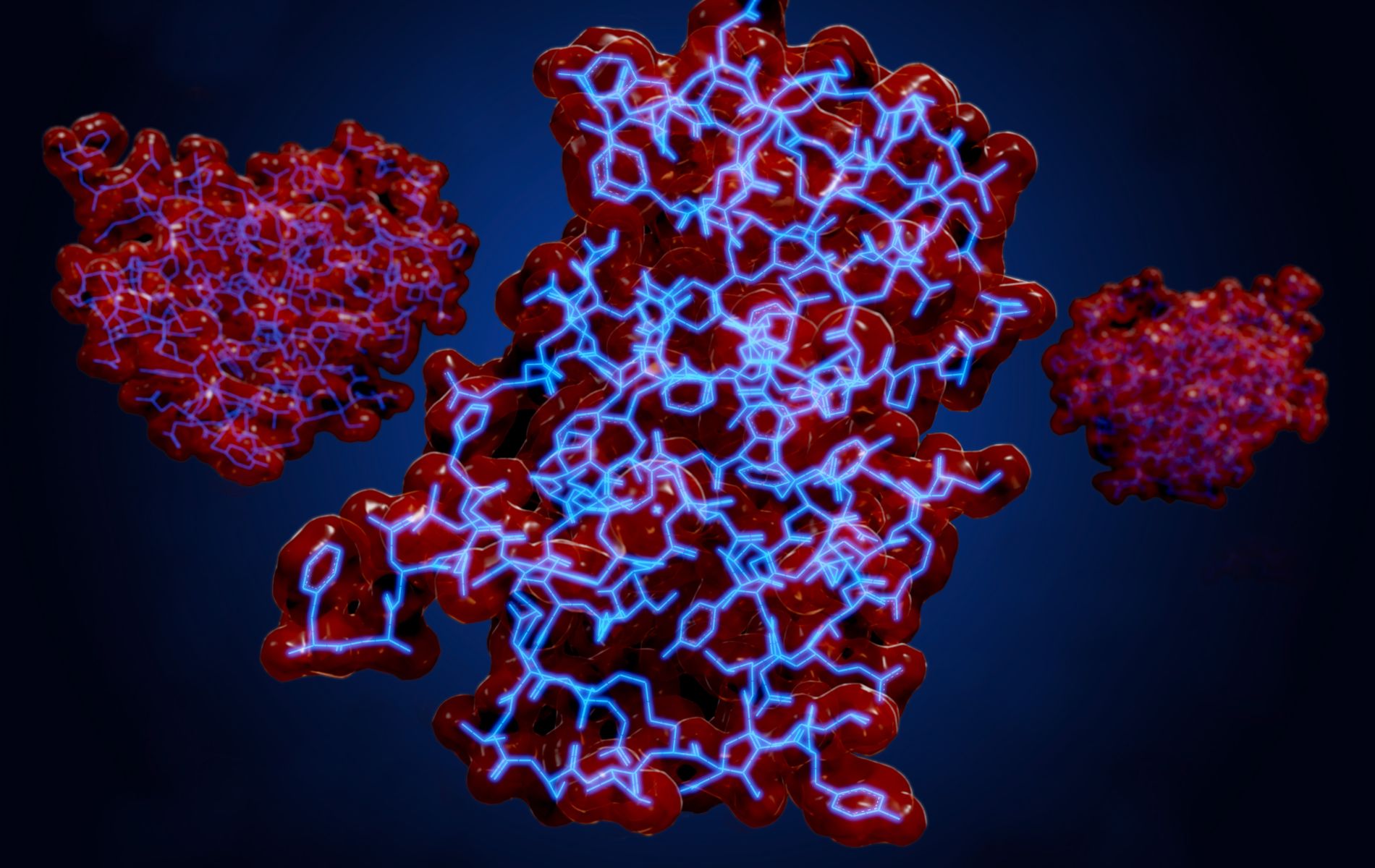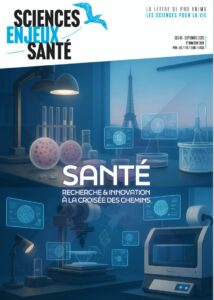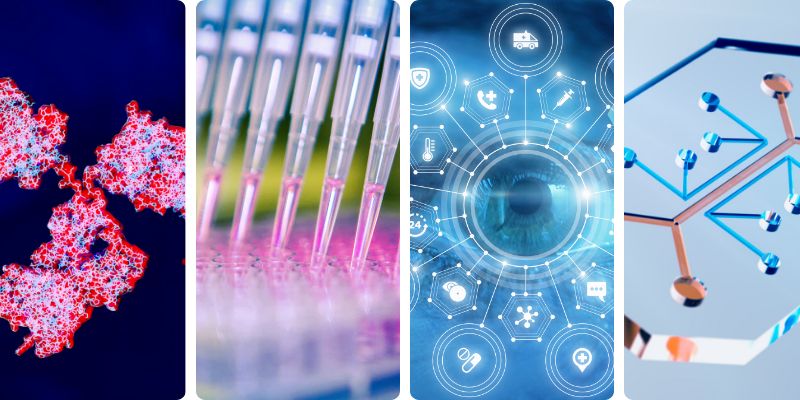
3D-printed living cells, Journal Issue focusing on innovative human-relevant brain research, Woman’s diabetes reversed with Stem cells and more
News on non-animal methods
SEPT. 30 - OCT. 04, 2024NEWS, REPORTS & POSITION STATEMENTS
1. 3D-printed living cells pave way for tomorrow’s medicine and cruelty-free animal products
As part of a research initiative called ENLIGHT which runs from 2021 to 2025, Dr. Riccardo Levato at the University Medical Center Utrecht and his multi-nations team are developing a miniature 3D-printed pancreas made of human cells. ENLIGHT team’s work of printing life-like human organoids would not only improve the accuracy of drug testing, but would also greatly reduce the need for animal testing.
Dr. Massimo Vassalli, a professor of bioengineering at the University of Glasgow in the UK, leads a multi-country research initiative called PRISM-LT which aims to develop cost-effective 3D printing of a variety of living tissues. “The aim of the project is to create a platform technology to address the manufacturing of a diverse range of living tissues for application in the health care and food industries” said Vassalli.
2. ECHA Calls for the Scientific Community to Research on Alternatives To Animal Testing
ECHA has identified areas where more scientific research is needed to shift away from animal testing : read-across and NAMs, In vitro/in silico ADME, Physiologically-Based Kinetic models, fish toxicity, and carcinogenicity.
Dr Sharon McGuinness, ECHA’s Executive Director, said : “We have updated this report to provide more detailed information on regulatory topics that need more research […] Our hope is that the research community will respond positively to our call. This update is in line with ECHA’s Strategy Statement 2024 – 2028 that aims to expand knowledge on chemical safety and to promote alternative methods for the assessment of hazards and risks of chemicals.”
INTERVIEWS, NOMINATIONS & AWARDS
3. InSphero’s mission to reduce animal testing in drug discovery
In this interview with the Swiss League Against Animal Testing (LSCV), Dr Madhu Nag, Chief Scientific Officer at InSphero, discussed the critical need for advancements in biotechnology to address the limitations of traditional animal testing in drug development.
The interview highlights the ethical concerns surrounding animal testing, including its inability to reflect the full spectrum of human diversity. By shifting to patient-derived models, InSphero researchers are working to reduce the high attrition rates seen in clinical trials by providing more precise and human-relevant data from the outset. Their technology enables early-stage drug testing that better informs decisions on which compounds move forward, leading to safer, more effective treatments entering clinical trials.
TOOLS, PLATFORMS, CALLS
4. Frontiers in : Special issue focusing on innovative human-relevant brain research
Growing awareness of the limitations of using animals to study human neurological conditions and continuing advancements in human-derived iPSC models, neuroimaging tools, and ‑omics technologies are driving a paradigm shift in how we study human neurodevelopment, neurodevelopmental disorders, and neurodegenerative disease.
The scientific journal Frontiers in Neuroscience is calling for submission for a special issue that aims to highlight research investigating human-specific neurological changes across the lifespan and their role in our increased vulnerabilities to neurological disease.
Manuscript Summary Submission Deadline : 22 November 2024
Manuscript Submission Deadline : 09 May 2025
5. Helpathon : Can you help Francesca develop gene therapy for curing inherited cardiomyopathies without the use of animal models ?
The Helpathon Hotel team invites you to join a cutting edge Helpathon on gene therapy on October 9th and 10th. This field opens up a whole new range of really exciting innovative human health diagnosis and therapy possibilities !
They are calling for both specialists (clinicians, biomedical researchers, policy makers, innovation managers, DEC members, funders) and general members of the public to explore in a safe place the possibilities of animal free innovation in this up and coming health research area. They will invite you to address hands on questions regarding risk and ethics… and explore if and where animal models can be avoided all together in this field of personalized medicine.
Please note that this is a Hybrid Helpathon. It is strongly encouraged to clear your schedule and help in-person in Amsterdam for 1.5 days. If that’s not possible, online participation is also an option.
Read more and join the Helpathon
INDUSTRY, BIOTECH & PARTNERSHIPS
6. AI and healthcare : Owkin to accelerate AI innovation for the benefit of patients
AP-HP, Europe’s leading university hospital center (CHU), the AP-HP and its 38 hospitals, renews agreement with Owkin to accelerate AI innovation for patients.The collaboration between the AP-HP and Owkin since 2019 has advanced health research with around twenty projects, some of which have led to scientific achievements such as Pacpaint : a histology-based deep learning model to uncover the extensive intratumor molecular heterogeneity of pancreatic adenocarcinoma.
“Thanks to AI and the AP-HP’s potential for innovation, we intend to increase our industrial partnerships and develop new therapies and diagnostic tools for patients.” — said Dr Thomas Clozel, CEO of Owkin.
Read more (FR)
SCIENTIFIC DISCOVERIES & PROTOCOLS
7. Stem cells reverse woman’s diabetes — a world first
Type‑1 diabetes is classified as an autoimmune disorder, as the immune system attacks islet cells in the pancreas responsible for producing insulin, a vital metabolic signaling hormone that instructs muscle tissues to absorb excess glucose and other sugars out of the bloodstream. Treated with exogenous insulin and a mixture of immunosuppressants, the only thing like a cure is an islet-cell transplant, for which there are not anywhere near enough donors to meet the demand.
Chinese researchers recently accomplished the feat of reverse-engineering the patient’s own tissues to produce pluripotent stem cells which they then chemically reprogrammed to form islet cells. The cultivated stem cells were injected during the surgery into the abdominal muscles — a new introduction site for this procedure. Previously, donor islets were transplanted into the liver, where they couldn’t be observed.
8. The use of organoids in creating immune microenvironments and treating gynecological tumors
Owing to patient-derived tumor tissues and cells, significant advances have been made in personalized cancer treatment and precision medicine, with cancer stem cell-derived three-dimensional tumor organoids serving as crucial in vitro models that accurately replicate the structural, phenotypic, and genetic characteristics of tumors.
This new review delineates the current state of research and application of organoid models regarding the therapeutic approaches and related challenges for gynecological tumors. This study may provide a theoretical basis for further research on the use of patient-derived organoids in tumor immunity, drug development, and precision medicine.
9. Aberrant neurodevelopment in human iPS cell-derived models of Alexander disease
Alexander disease (AxD) is a rare and severe neurodegenerative disorder caused by mutations in glial fibrillary acidic protein (GFAP). In a new study, researchers observed impaired differentiation of astrocytes and neurons in co-cultures of astrocytes and neurons, as well as in neural organoids, both generated from AxD patient-derived induced pluripotent stem (iPS) cells with a GFAPR239C mutation. Leveraging single-cell RNA sequencing (scRNA-seq), they identified distinct cell populations and transcriptomic differences between the mutant GFAP cultures and a corrected isogenic control.
Overall, their results point to altered cell differentiation in AxD patient-derived iPS-cell models, opening new avenues for AxD research.


